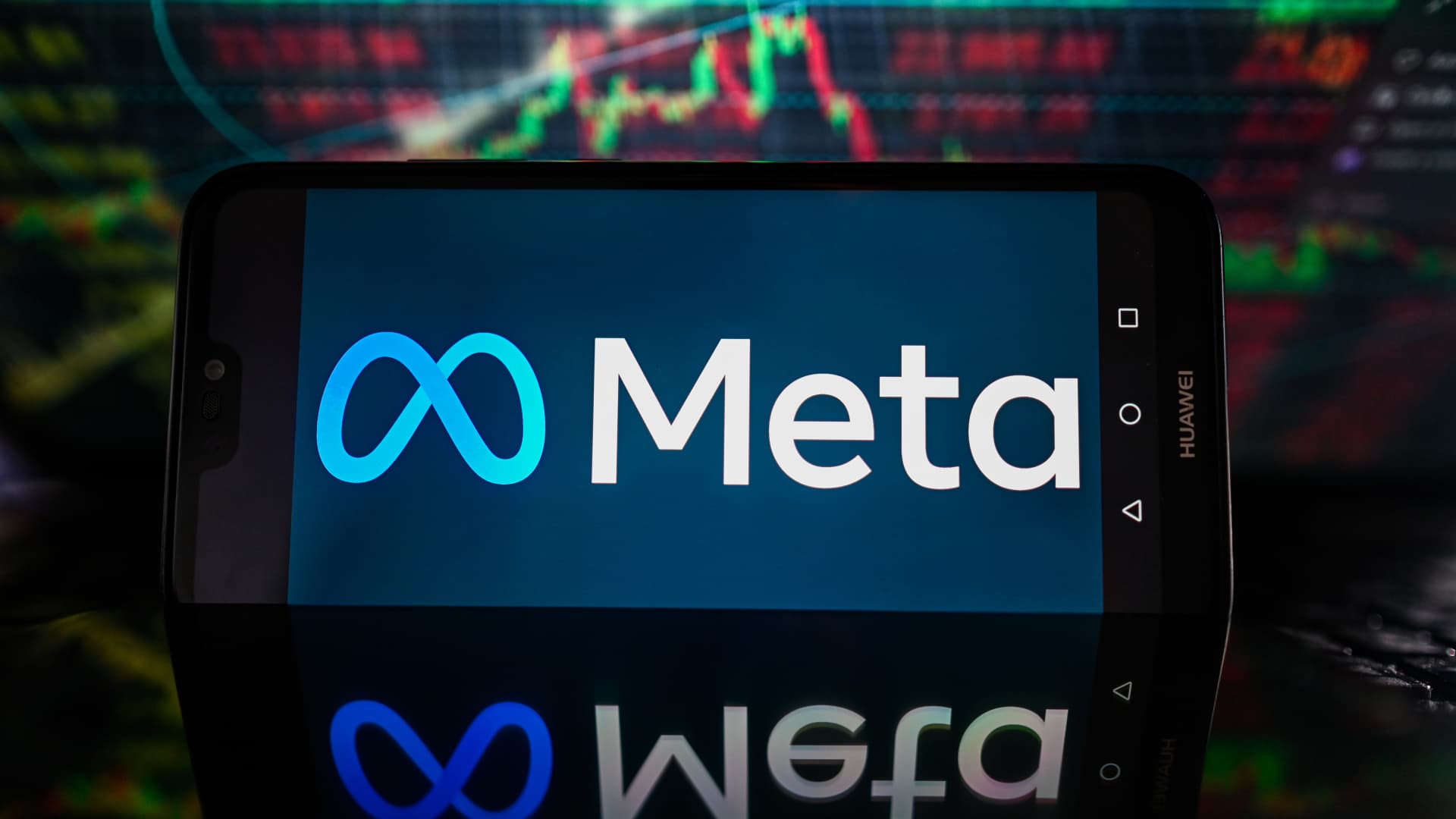
Both Meta Platforms and Alphabet saw their shares caught up in a broad tech sell-off last week — but several analysts remain bullish. Meta’s stock fell 3.86% last week, while Alphabets slid 9.9% in a brutal five days which saw the S & P 500 close in correction territory . Stocks broadly rallied in Monday trade, however, and both stocks were trading over 2% higher toward the end of the trading day. On Meta, concerns emerged last week following CFO Susan Li’s comments on the advertising market in the fourth quarter. The Facebook-owner provided a wider revenue guidance range than normal, given the uncertainty of how the escalating conflict in the Middle East will affect ad spending, she explained on the company’s earnings call last week. Analysts like Dan Ives see this as an opportunity for Meta, however. “I believe this tech sell-off here, [when] we look back three, six months, I view this as more of a golden opportunity, not the time [for Meta] to head into hibernation mode,” the managing director and senior equity research analyst at Wedbush Securities told CNBC’s ” Squawk Box Asia ” on Thursday, in the midst of the market downturn. He now foresees the company being “pretty cost-conscious” going into next year. He’s expecting Meta and Alphabet’ s Google to be more cautious in their spending on digital advertising in the next quarter, but said “they’re going to continue to significantly invest.” He said it’s “something that in this arms race, they need to do,” adding that the platform should also invest in artificial intelligence. Despite the negative sentiment surrounding Meta, the veteran analyst believes it’s “overdone in terms of any sort of selling pressure given the results we’ve seen,” and said the company’s digital advertising looks “strong, rock solid.” In its third-quarter earnings report on Wednesday, Meta reported a 23% increase in revenue from a year earlier to $34.15 billion. It reported 24% year-on-year growth in ad revenue, surpassing that of rivals like Alphabet (+9.5%) and Snap (+5%). The “trouble spot” Ives sees is Reality Labs — Meta’s business research unit – which produces virtual reality and augmented reality hardware and software, including virtual reality headsets. “At the end of the day, Meta they’re not a hardware company. And I think that’s something that’s been uphill battle for them to monetize as pricings been an issue … They have to balance the investment profile and you want to see [founder Mark] Zuckerberg and Meta double down on AI, that’s where it’s all heading,” Ives said. META YTD mountain Year-to-date share price movement in Meta Year-to-date, shares in Meta are up over 150% higher. Like Ives, several other analysts are sticking to their buy rating on the stock and optimistic outlook on the social media giant. Morgan Stanley views Meta as one of the companies best positioned to weather the volatility in the tech sector. “While all advertising may be impacted by geopolitical activity, advertising allocation remains a relative game and we believe Meta differentiation gap is widening vs most peers,” the bank’s analysts wrote in an Oct. 26 note. Similarly, JPMorgan analysts noted that “Meta continues to execute well and remains disciplined. We would be buying the pullback in Meta shares” in an Oct. 26 note. The analysts boosted their price target to $420 a share from $400. Shares were trading around $303 in late Monday trade. Analysts from Baird Equity Research, however, downgraded their price target on Meta to $345 in an Oct. 25 note, from $355 previously. The analysts attribute their more conservative outlook to “some caution on macro-influenced ad spend in the ongoing quarter and an acceleration in spending next year.” Nevertheless, “Meta continues to benefit from core investments in AI, Reels is no longer a revenue headwind, and engagement is improving,” the analysts wrote. — CNBC’s Jonathan Vanian and Michael Bloom contributed to this report.
